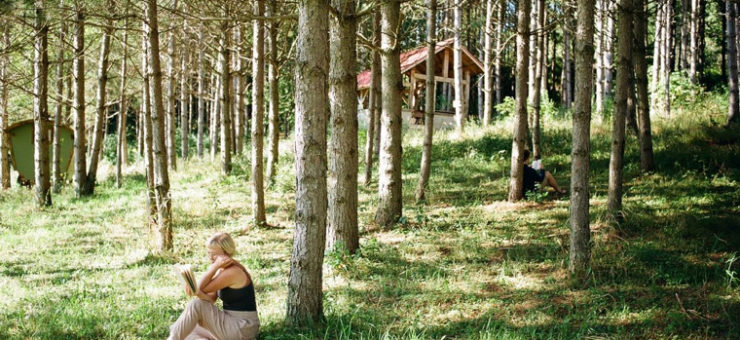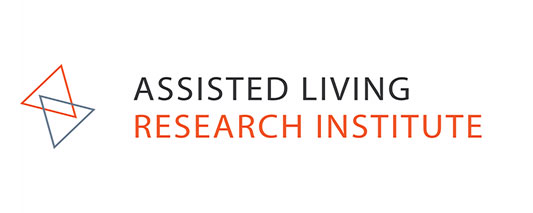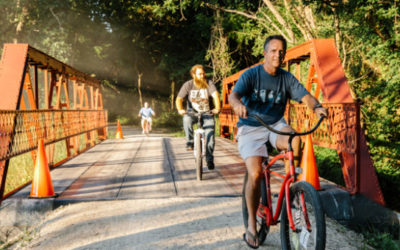“Rooted in the ridges and valleys of the Driftless Region of the upper Midwest, Thoreau College models a transformative liberal arts curriculum that immerses students in authentic community, shared labor and governance, and rigorous engagement with great works and natural phenomena. Thoreau College creates a context where students can nurture their sacred curiosity, connect with their deepest selves, and cultivate the capacities they will need to manifest their highest aspirations for the world.”
This piece was written by Colleen Smereka, who spent 9 months in the Founding Fellows Program of the nascent college. It speaks to her personal experience in the Founding Fellows program as well as her particular gifts and challenges as a person who has been tested by a learning disability.

Colleen Smereka, Thoreau College Founding Fellow
On October 1, 2017 I boarded a flight in Calgary, Alberta, my ultimate destination: Viroqua, Wisconsin, a small town of 4500 residents in the southwestern part of the state known as the Driftless region. As I stared out the tiny window of the plane, many thoughts swirled around my mind as I tried to manage my excitement and nervousness regarding the coming year. Working full time right up until I left hadn’t allowed me much space to think about what the next nine months would hold for me. I had agreed to live with four strangers, abstain from drinking alcohol, and refrain from using social media. I arrived in Viroqua with two suitcases containing a small fraction of my personal belongings.
So how did I end up on this move from a large city like Calgary to a small, rural town in Wisconsin? Let me back up and start from the beginning. In April 2017, after a long day at work, I was lying on my couch scrolling through Facebook. I came across a post that made me stop:
Thoreau College is seeking a group of five motivated, idealistic, and hardworking young people to come and live in Viroqua from late September 2017 to June 2018. While here, the Founding Fellows will collaborate with the Thoreau College Steering Team, local and remote partners, and each other to lay the foundations for the establishment of the college. The schedule of the year will include a mixture of classes focused on the philosophy and history of higher education and skills for social entrepreneurship, collaborative work sessions, artistic practice, and internships with partner schools, organizations, farms, and businesses. Throughout the year, the Founding Fellows will live and labor together to plant the institutional seeds from which Thoreau College will grow.
Thoreau College is an initiative to establish a new micro-college in Viroqua, inspired by the life and ideas of Henry David Thoreau and of Rudolf Steiner —the founder of Waldorf education— and by the model of Deep Springs College —the original micro-college, located in the high desert near Bishop, California. The idea is to create a liberal arts college rooted in the community of Viroqua and the Driftless Region, hosting 25-30 students who are motivated by a desire to challenge and develop all aspects of their humanity and to discover their unique purpose and vocation in life.

Outdoor Classroom. (Photo courtesy of Thoreau College)
A close friend of mine from college is from Viroqua, and I had visited her and her family a handful of times over the last 16 years. After every visit, I left feeling inspired and intrigued by the people I had met. Each time I traveled to Viroqua I was exposed to new views regarding agriculture, meal preparation and learning. Even with my limited experience of the region, I could sense it was different than any other place I had ever been, and since my first visit, I had felt an increasing desire to spend extended time there. The Thoreau College Founding Fellows program seemed like my chance. Over the next couple of weeks, during my hour-long train commute to and from work, I would daydream about living in Viroqua, but I kept it to myself because I couldn’t imagine a scenario where I would be able to walk out of my Calgary life for nine months. Even though I was fully sold on the idea of taking a chance on the Founding Fellows program, I still wasn’t sure what my family and friends, and especially my husband Darcy, would think. After a couple of weeks of daydreaming, I finally worked up the courage to approach the subject with Darcy. We had a lengthy conversation about finances and our values regarding experiences that could lead to personal growth. I was delighted by his openness to the idea, and with Darcy’s full support, I was determined to do what I could to take part in the program.
As I spent the summer wrapping up my job, my friends and family seemed excited for me. But I had this nagging feeling that they quietly wondered why I would put a career on hold that I worked so hard to get, and why I would want to spend such an extended amount of time away from my husband, career and life. The truth is, I was asking myself these same questions. Many aspects of the Founding Fellows program spoke to me but the perspective I had gained working as an Accessibility Advisor at a college in Calgary was one of my driving forces. Accessibility Advisors often say that they want to work themselves out of a job. If educational institutions had curricula and environments free of barriers, then Accessibility Advisors wouldn’t need to meet with students with disabilities to design the individualized plans aimed to eliminate barriers they are facing. So, for me, the thought of bringing the voice of disability to the foundation of Thoreau College, would be a dream come true. Being able to articulate this dream was important as I tried to explain my reasons for taking a chance on this opportunity to my friends, family and colleagues. There were other reasons that were drawing me to this project as well, but I couldn’t completely put them into words. Something deep inside of me was telling me that I would grow significantly by participating in this grand adventure.

The beautiful Driftless region. (Photo courtesy of Henry Hundt)
Pursuing a career in the area of disability began in my life after being diagnosed with one myself at the age of twenty-two. Four years after being diagnosed, I was able to attend university, and completed a BA honours degree in Sociology. Finding out that I had a learning disability allowed me to better understand my needs as a learner and gain new strategies that allowed me to be successful in the classroom. While at university I was exposed to perspectives that helped me change how I viewed the world around me as well as how I viewed myself. After being diagnosed, my biggest confidence growth came from exposing myself to different ways of viewing the world. I started to see that people appreciated who I was and that they could see that my differences made me unique and special. Over the course of my education, I spent less and less time hiding who I was, and began to trust people around me. Pursuing a university degree provided countless experiences that allowed me to grow, but most of all it carved out a path for me to embrace myself and my unique differences, allowing me to imagine new possibilities for my future.
Once I began my working career, it didn’t take long to realize that my personal growth would be much slower than it had been when I was attending university. I had a desire to continue building the confidence that would support my career aspirations, but I struggled to understand how to create an environment that would allow that to happen. What I did know is that universities create spaces where people from all different backgrounds come together to learn together. I also knew that if I pushed myself out of my comfort zone, I would grow. As I considered the Founding Fellows experience, I was able to see that the opportunity presented a recipe for growth that was similar to my past university experiences. Even if I couldn’t completely articulate what kind of growth I needed, or how I would expand, the possibility for growth was a primary driver in my desire to take a chance on the Founding Fellows program.
As Founding Fellows, we spent the first few months getting to know each other. We also spent time figuring out how we would live together, run meetings, raise money, work together effectively, study academic text, and understand the history and vision for Thoreau College. During this time, the Thoreau College steering team communicated that they would be expecting us to participate in self-governance. This would include contributing to all aspects of the college development and working on inner self-governance. As you can imagine, each person involved in the project would have a different understanding of what that meant for them, in addition to different desires and abilities to take on those tasks. Because of these variations in personality and motivation, each person was challenged in different ways. After the initial few months of living in the Thoreau College house, I was awakened to how much I was seeking the approval of others and how this need for acceptance was impacting my interactions with the new team.

Community Cooking. (Photo courtesy of Thoreau College)
When I was in secondary school I was unable to live up to what everyone expected of me. I was constantly spelling words wrong. My grades were always in the “you could do better” category, and those C’s and D’s lead many people to believe I was lazy and stupid. These encounters most often left me feeling like I wasn’t good enough, and because of this, I desperately sought out ways to prove my worth. While attending university, I received the tools I needed to produce test scores that proved to others that I was “smart.” My grades drastically changed and people started to treat me differently. After that, people’s opinions of me started to change. Through these life experiences I developed a sense of worth by pleasing others. It took a while to realize it, but I wanted more from this experience than just going along with group think.
During one of our many dinner conversations, it came to my attention that I was struggling with taking feedback from my housemates. I was challenged by this situation because I had previously thought that I was good at receiving feedback. But this situation was different. The conversations we were having were more about preferences around how to do things in the house, which put me in a position to decide whether to take the feedback or not. Having to make a choice between what I believed and what others wanted me to do created a real dilemma for me. I realized over time, that the answer to this dilemma could only be found inside of me. It is clear to me now that during this project, I was faced with making many decisions between seeking an understanding of what I really wanted and voicing these opinions, or choosing to be silent.
The decision making process at Thoreau is achieved through consensus building. To build consensus, each person needs to have the space and time needed to share their thoughts regarding the topic at hand. When you’re asked what you think over and over again, you learn to effectively communicate your thoughts. Eventually, I learned that I had a voice, and that voice came with real power and consequences. In the past, my success with communication had been complicated by my inability to express my thoughts in the moment, silencing myself because I thought I was stupid, and not saying what I truly thought because I was worried about hurting other people’s feelings. Now that I was in a position where feedback was required, I had to find a way to speak. It is important to remember that these experiences I’m outlining didn’t happen in a logical order. They were happening in real time, and for the most part I struggled to see clearly how I was growing in the moment. I was often frustrated by how uncomfortable I was while I was struggling to find my voice, but now that I have had some separation from the project, I can see and feel the growth I experienced.
In March, six months in to the project, our group started having end of week reflection meetings. These new reflection meetings were significant to my growth because there was a change in what was being expected of me. To participate fully in the reflection meetings, I needed to reflect on how my week went and how I felt about things happening around me. The new focus created a space for me to bring attention to what I was feeling. It opened up a safe space for me to express my thoughts about anything that happened during the week, including how I felt about my own experiences. I started to ask myself questions such as: Where is my energy going? What activities take my energy? And, what gives me energy? These questions propelled me to go deep into myself in search of the answers. I started to read more. I also started walking, which helped me become deeply contemplative. The walking made me feel more at peace. I recognized that walking alone was the closest I’ve ever felt to what I imagined a meditative state might feel like. The more walking I did the better I was at keeping on top of my journaling practice, which the steering team had encouraged us to do when we first arrived in Viroqua. After we studied Walden by Henry David Thoreau I could feel the power of observation that he captured in his journal writings and this solidified the importance of journal writing for me, but I had struggled to keep up my daily practice until I started walking.

Exploring the Driftless. (Photo courtesy of Thoreau College)
When I first started going for walks I would say “I need to go for a walk.” Then one day I thought to myself I need to go for MY walk. I changed my internal language from thinking about the walk as a chore, to an activity that I was eager to do. This change in language was the beginning of a major shift for me. The walks went from something I should do, to a space I was creating for myself because I wanted it and needed it. As my walks became an integral part of my time in Viroqua, strong thoughts and feelings started to emerge. At first I was confused by these thoughts and feelings because I had never experienced them before. Most of my thoughts and feelings came from what Rudolf Steiner would call the thinking self. As I continued to walk and reflect on these experiences I came to understand that I was able to hear my soul voice—the voice that comes from deep inside of me, the voice that is free of the pain, hurt, and worries of the world. For me, my soul voice is only concerned with my inner self and guiding me to my true path in life – it is the voice that believes in and understands my true abilities. In the essay Walking, Henry David Thoreau states, “I think that I cannot preserve my health and spirit, unless I spend four hours a day at least —and it is commonly more than that— sauntering through the woods and over the hills and fields absolutely free from all worldly engagements.” The simple act of walking has provided me with observations and insights into myself I didn’t have access to before.
Prior to attending the Founding Fellows program, I had always wondered what people meant when they talked about having a spiritual journey. Somewhere along the way, I decided that the only people who could have a spiritual journey were people who subscribed to a particular faith. I never thought I would be able to experience it myself.
But once I was able to hear my inner voice I asked myself why accessing it was important to me? As I mentioned earlier in this piece, I had lived much of my life as a people pleaser. While I mostly painted that in a negative light, I have come to recognize that pleasing people is not necessarily a bad thing, it is only bad when it comes at the cost of my own internal integrity. The challenge has been accessing my inner voice through all the noise coming from the people and media around me. I personally believe it is good to make compromises with others, but I had not always been aware of the compromises I was making. There were too many times when I sensed I was going along with what others wanted but was unable to speak up for myself. Today, I feel empowered with the knowledge and skills to access my soul voice, to hear and understand what I want, as well as have the confidence to speak my truth. Through my experiences with walking and the words of Thoreau I gained a new prospective of how to access my true self and actively try and convey this self in my daily interactions with others.

Thoreau College makes its home in the rural landscape of the Driftless region. (PC: Kirk Tornga)
As my time in Viroqua came to an end, I was sad and scared to return home. Calgary is a city filled with amazing opportunities but it also comes with lots of distractions. My experience in Viroqua showed me how much I had been distracting myself from what is important to me. I distracted myself with television, social media, acquiring stuff, working, and volunteering. Through my journey at Thoreau College I realized what I’m missing most in my life is being a part of a deeply connected community. I would never have realized this if it weren’t for the amazing community that surrounds Thoreau College. I volunteered over 400 hours during my stay in Viroqua. If it weren’t for the community believing in me and providing me with so many opportunities to share my gifts, my ability to evolve into who I am today would have taken much longer. The knowledge I have gained from my experience with Thoreau College has already had major impacts for my life, as I am now more aware of my thoughts, how the ways in which my environment is impacting me, and I can hear my own wants and desires more clearly. I understand that with fewer distractions I can have more control over my thoughts and feelings.
Now that I have returned to Calgary and had some time to reflect on the last year, I have told many people that my time in Viroqua was life changing. But as you can see, putting this transformation into words is difficult and messy, because the experience is very personal and requires dedicated self-reflection. Shortly after returning home I decided to leave my job and spent time thinking about how to take care of myself in the context of my community in Calgary. I also devoted time to understanding what my mission in life is. Thoreau College’s curriculum will provide students space and time to work on understanding what their mission and purpose is. I thought it would be only fitting that I try as well. What I realized is the task of understanding such things takes time and requires personal self-reflection over an extended period of time.
What I have learned so far is that I feel lonely when I’m not surrounded by others who want to engage in deep learning together. I long for a community of people who have the desire to question the world around them and push themselves to grow. I understand now that I have to work hard to find ways to create this environment for myself. I found this type of community in Viroqua and wish to create it for myself in Canada. This quote from Walden helped me come to understand why I was feeling so lonely. “What sort of space is that which separates a man from his fellows and makes him solitary? I have found that no exertions of the legs can bring two minds much nearer to one another.” Thoreau College has given me more tools to understand myself.

Discovery. (Photo courtesy of Thoreau College)
What is next for Thoreau College?
Going forward, Thoreau College is planning to offer a series of 9-month residential programs called “Growing Seasons at Thoreau College.” The first Growing Season is scheduled to take place from March-December of 2019 and will be organized around the theme of land, agriculture, and the relationship between humans and nature. Participants will live together in a self-governing household and will participate in a course of activities including reading and discussion of ancient and modern texts related to the theme, manual work in agriculture and food preservation and production, wilderness experiences, and guided explorations of journaling, biography work, contemplation, and other techniques for deepening self-knowledge. It was an exciting and life-altering experience for me to participate in the Founding Fellows program, and I wholeheartedly expect that those who follow in my footsteps are likely to have equally transformative experiences.
To learn more about Colleen and her early years as a learning-challenged student, click here.
To learn more about Thoreau College and the upcoming “Growing Seasons” click here.






